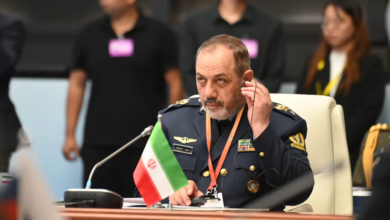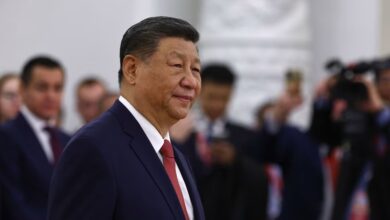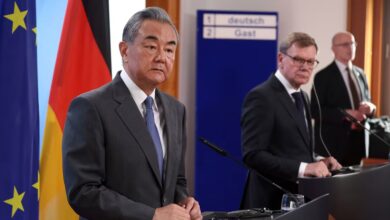China hit back on Saturday at US claims it was shirking in the fight against climate change, likening the criticisms to a mythic pig preening itself.
Frustration between the world's two top carbon polluters overshadowed week-long UN talks seeking progress on the shape of a new climate pact, with negotiators making some progress on financing but failing to dispel fears the process could end in deadlock.
Su Wei, a senior Chinese climate change negotiator, swiped at comments from top US climate envoy Todd Stern as the climate change talks drew to a close in the north Chinese city of Tianjin.
Stern, in remarks at a US university, said Beijing could not insist rich nations take on fixed targets to cut greenhouse gas emissions while China and other big emerging nations adopt only voluntary domestic goals.
Su countered that Stern's claims were a diversion from the United States' failure to make big cuts in carbon dioxide and other greenhouse gases causing global warming.
Su likened the US criticism to Zhubajie, a pig in a classic Chinese novel, which in a traditional saying preens itself in a mirror.
"It has no measures or actions to show for itself, and instead it criticizes China, which is actively taking measures and actions," Su said of the United States.
The talks in Tianjin reached firmer agreement on funding for poor countries hit by global warming, green technology transfers, and other steps intended to build momentum for more high-level treaty talks in Cancun, Mexico, from the end of next month.
Cancun is meant to be the stepping stone to a legally binding deal next year that would lock in governments into reducing greenhouse gas pollution holding heat in the atmosphere and threatening to tip over into dangerous global warming.
Officials and activists in Tianjin said they were frustrated that more was not agreed in sessions that often dwelt on procedures. Talks on protecting carbon-absorbing rainforests languished.
NEED FOR SPEED
"We're moving in the right direction, but we certainly need to put our foot on the accelerator," said Julie-Anne Richards of the Climate Action Network, which monitored the talks.
Progress this week should lead to some decisions in Cancun, said Wendel Trio, Greenpeace International climate policy director, but he pointed to the bickering that has dominated the Tianjin meeting. "At times it has been like watching children in a kindergarten," he said.
The jabs between Beijing and Washington exposed a rift likely to keep dogging talks: to what extent China should be regarded in treaties as an emerging economy free of fixed greenhouse gas reduction goals.
The first phase of the Kyoto Protocol, the UN's main weapon against climate change, ends in 2012 and what follows from 2013 is under contention.




